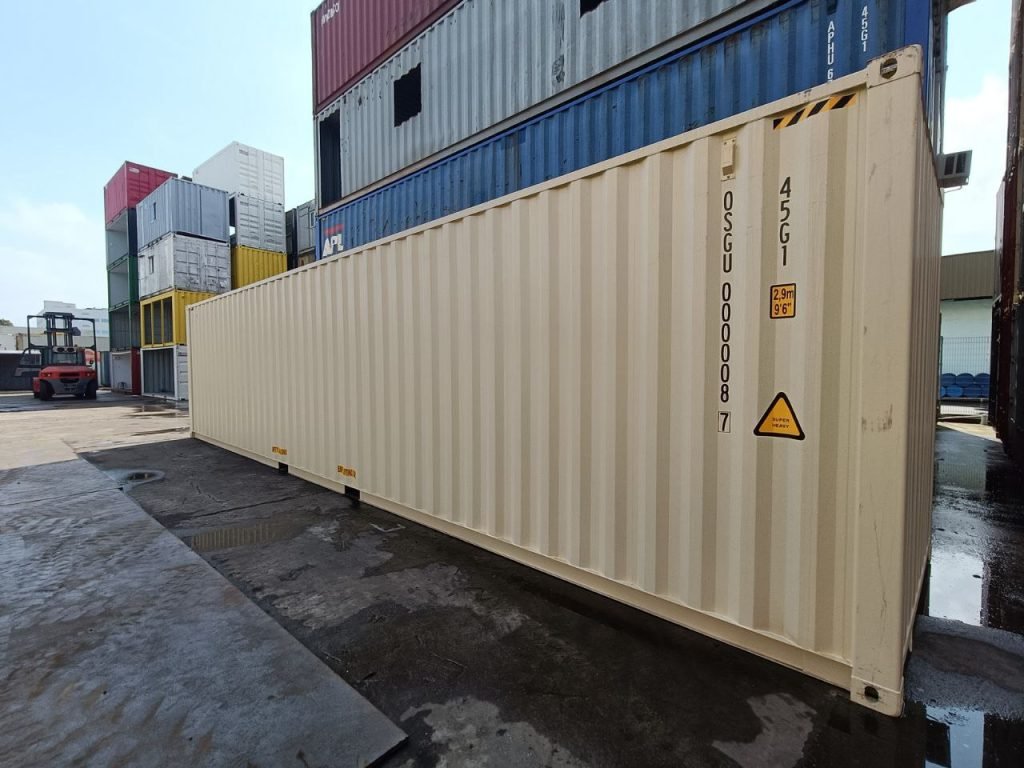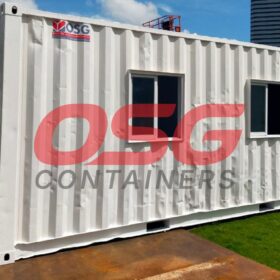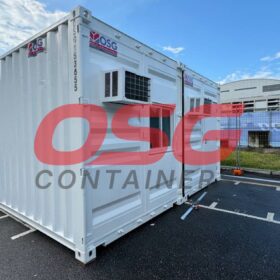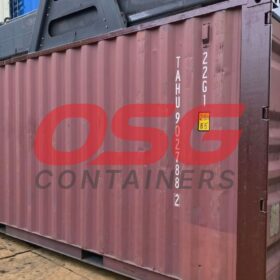Shipping Container Warehousing: A Flexible and Cost-Effective Solution
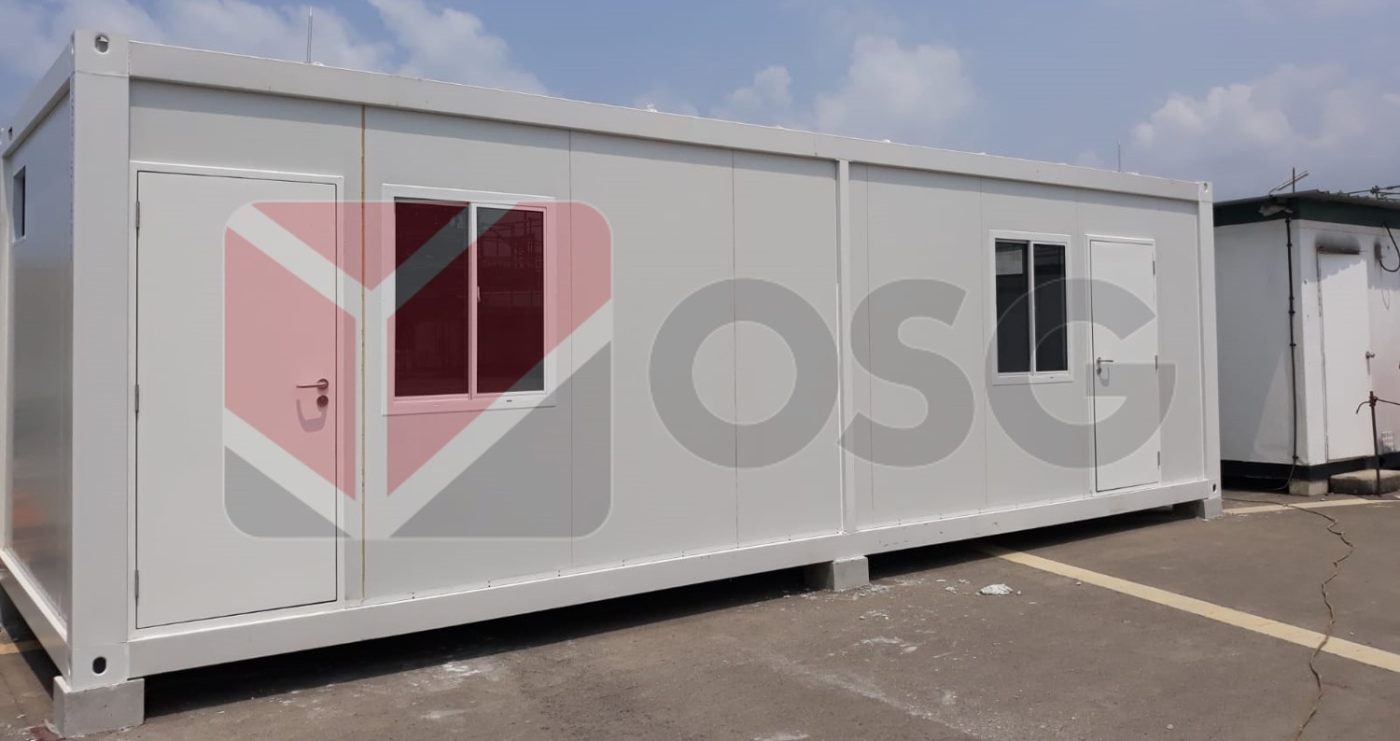
In today’s fast-paced and ever-evolving business environment, companies are constantly seeking innovative solutions to streamline their operations and reduce costs. One such solution gaining popularity is shipping container warehousing. This approach offers a flexible and cost-effective alternative to traditional warehousing methods, and it’s transforming the way businesses handle their storage needs.
What is Shipping Container Warehousing?
Shipping container warehousing involves the use of repurposed shipping containers as storage units. These containers, originally designed for transporting goods across seas, have found a new lease on life in the world of warehousing. Their robust construction and modular nature make them an attractive option for businesses looking to optimize their storage solutions.
Advantages of Shipping Container Warehousing
- Cost-Effectiveness
One of the primary benefits of shipping container warehousing is its cost-effectiveness. Traditional warehouses often come with high rental costs, maintenance fees, and utility bills. In contrast, shipping containers are relatively inexpensive to acquire and maintain. Once purchased, they require minimal upkeep, which significantly lowers overall expenses. Additionally, they eliminate the need for extensive construction or renovation costs associated with traditional warehousing.
- Flexibility and Scalability
Shipping containers offer unparalleled flexibility and scalability. They come in various sizes and can be easily modified to suit specific storage requirements. Businesses can start with a few containers and expand as needed, allowing them to scale their storage capacity without the constraints of traditional warehousing. This modularity ensures that businesses can adapt to changing inventory levels and operational needs efficiently.
- Portability
Another significant advantage of shipping container warehousing is its portability. Containers can be easily transported from one location to another, making them ideal for businesses with fluctuating storage needs or those requiring temporary storage solutions. This portability is particularly beneficial for companies operating in remote areas or regions with limited access to traditional warehouse facilities.
- Security and Durability
Shipping containers are built to withstand harsh environmental conditions, making them a secure and durable storage option. Their heavy-duty steel construction provides excellent protection against theft, vandalism, and weather damage. Many containers also come with secure locking mechanisms and can be outfitted with additional security features, such as surveillance cameras and alarm systems, to further enhance their safety.
- Quick Deployment
The speed at which shipping container warehousing can be deployed is another advantage. Unlike traditional warehouses, which may require extensive planning, construction, and permits, shipping containers can be quickly delivered and set up. This rapid deployment allows businesses to address their storage needs promptly and with minimal disruption to their operations.
- Environmentally Friendly
Utilizing repurposed shipping containers for warehousing is also an environmentally friendly choice. By giving these containers a second life, businesses contribute to sustainability efforts by reducing waste and minimizing the need for new construction materials. Additionally, many containers are made from recyclable materials, further enhancing their eco-friendly profile.
Considerations for Shipping Container Warehousing
While shipping container warehousing offers numerous benefits, it’s essential to consider a few factors before making the switch. These include:
- Zoning and Regulations: Ensure that local zoning laws and regulations permit the use of shipping containers for warehousing. Some areas may have restrictions or require permits for container installations.
- Container Maintenance: While containers are generally low-maintenance, periodic checks are necessary to ensure they remain in good condition. Regular inspections for rust, structural integrity, and functionality of locking mechanisms can help prolong their lifespan.
- Climate Control: Depending on the nature of the stored goods, climate control may be required. Containers can be equipped with heating, cooling, and ventilation systems to maintain optimal conditions for sensitive inventory.
Conclusion
Shipping container warehousing represents a modern and practical solution for businesses seeking flexibility, cost savings, and efficiency in their storage operations. Its versatility, durability, and affordability make it an attractive option for a wide range of industries. As businesses continue to adapt to changing market conditions and seek innovative ways to optimize their operations, shipping container warehousing is poised to play a significant role in the future of storage solutions.
 Singapore
Singapore Australia
Australia Indonesia
Indonesia Japan
Japan Malaysia
Malaysia New Zealand
New Zealand Philippines
Philippines South Korea
South Korea Taiwan
Taiwan Thailand
Thailand VIETNAM
VIETNAM
